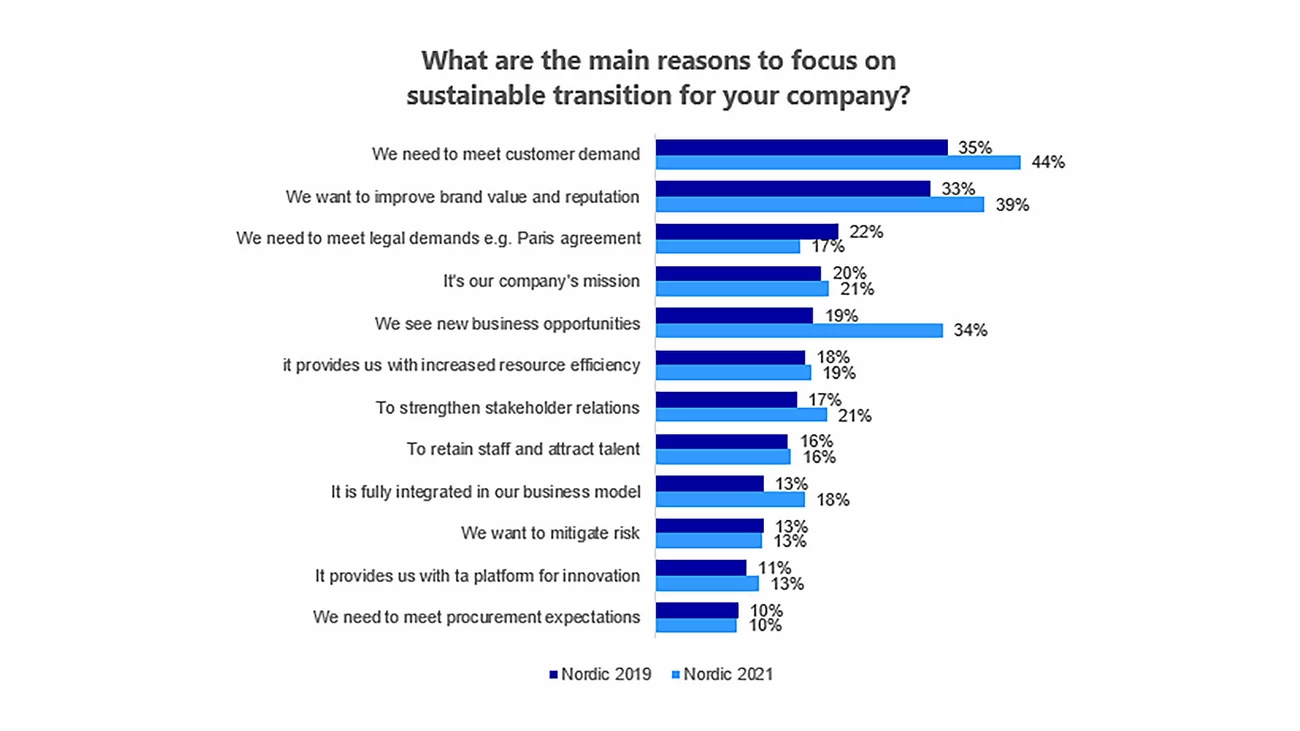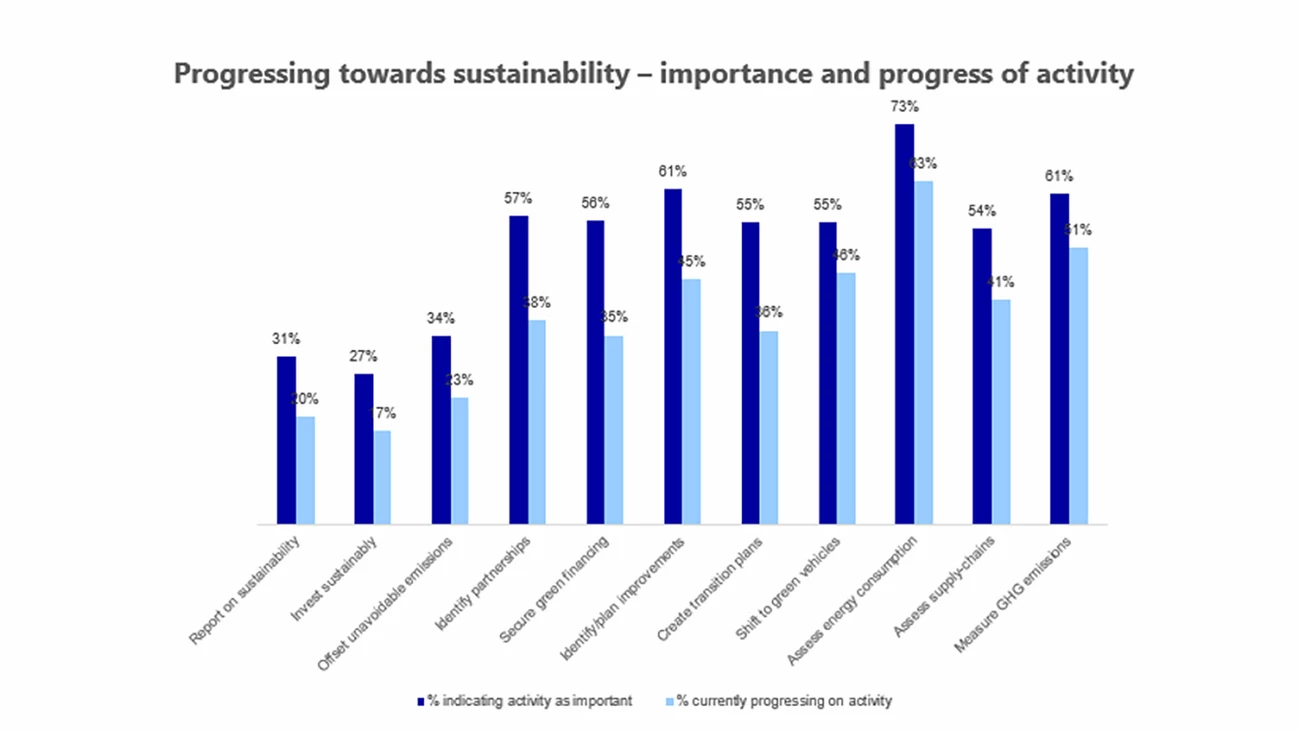
“Our corporate customers are progressing with integrating sustainable activities such as measuring their greenhouse gas emissions and assessing energy consumption. We can see positive trends emerging,“ comments Nina Arkilahti, Head of Business Banking.
“Companies are increasingly focusing on their sustainable transition due to customer demand, brand value and new business opportunities – and, to a lesser degree, legal obligations,” she continues.








